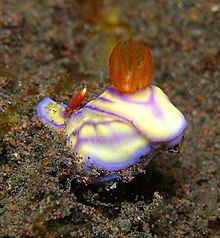바트코헨
Bat-Kohen| 에 대한 일련의 기사의 일부 |
| 유대교의 사제 |
|---|
| |
| 코헨 · 사제계통의 인정 프리스틀리 언약 |
박쥐코헨 또는 박쥐코헨(Hebu: בת כהן)은 코헨(Jewish president)의 딸로, 히브리어 성경의 특별 규정과 광견병에 관한 문헌에 의해 지배되는 특수한 지위를 가지고 있다.
광견병학 문헌에서 박쥐 코헨은 이스라엘의 딸들의 일반 인구에 비해 독특한 것으로 여겨진다. 이러한 독특함은 평균 이상 그리고 심지어 강렬한 영적 수준(Kedusha)에 대처하는 그녀의 타고난 능력에 의해 다른 속성들 중에서도 보여지는 것으로 여겨진다.
The Mishnah and Talmud instruct that the bat kohen is to be scrupulous in matters of tzniut ("modesty"), thereby portraying the values of maintaining a life dedicated to holiness and her father's life-work, and also that the bat kohen marry a kohen.
The bat kohen is entitled to a number of rights and is encouraged to abide by specified requirements, for example, entitlement to consumption of the holy parts of sacrifices, lenient specifications in her preparations for immersion (Talmud Yerushalmi, Pesachim 1) and an above average monetary stipulation in her marriage contract. Also, the firstborn of a daughter of a Kohen or Levite is not redeemed at thirty days.
Hebrew Bible
The initial mentioning in the Hebrew Bible of a daughter of a priest as a unique personality is at the time Joseph was ordained viceroy to Pharaoh:
And Pharaoh called Joseph's name Zaphnathpaaneah; and he gave him to wife Asenath the daughter of Potipherah priest of On. And Joseph went out over [all] the land of Egypt.
— Genesis 41:45, KJV 1611
Next in the Hebrew Bible is the marriage of Moses to Zipporah, daughter of Jethro the priest of Midian. However, in terms of Talmud interpretation of the Torah and Halacha, the Aramaic and Hebrew term bat kohen is used and reserved for the daughters of Jewish male priestly descendants of Aaron exclusively.
Chazal[who?] recognize Tamar as a daughter of a priest, and describe her as being the daughter of Shem, who was a priest before the priestly covenant was given to Aaron, and thus the Torah lists her punishment as Sreifah "burning"—a punishment given the bat kohen as described below.
Consumption of holy parts of the offering
The Torah stipulates specific birthrights and unique responsibilities of the daughter of the Jewish priest (kohen). In the Hebrew Bible she is granted the privilege of consuming specified parts of the sacrifice as well as heave offering, both being perishables that carry numerous rules and requirements of purity (tohorot) for their consumption. This right is specified in Numbers;
All the heave offerings of the holy things, which the children of Israel offer unto the LORD, have I given thee, and thy sons and thy daughters with thee, by a statute for ever: it [is] a covenant of salt for ever before the LORD unto thee and to thy seed with thee.
— Numbers 18:19, KJV 1611
.
The types of sacrifices the bat-kohen is afforded include the breast and thigh of the peace offering, the four loaves of the thank offering the foreleg of the Nazirite's ram offering.
The bat-kohen is entitled to offer her employees to partake in her heave offering,[1] and, by the Law, it is permitted to bypass her father (or husband) and initially give her tithe offering and dough offering but Menachem Meiri forbids this of concern that one may give these gifts in error to the wife of a Kohen who was initially the daughter of an Israelite post her divorce, such giving the gifts to a person who is no longer entitled to the gifts.[2]
The daughter of a priest is likewise permitted to consume the firstborn animal. Regarding the giving of the foreleg, cheeks and abomasum, there is a Tannaic dispute as to whether an Israelite performs his mitzvah by giving them to the bat-kohen. This is the disagreement between the School or Rabbi Yishmael and the school of Rabbi Eliezer Ben Yaakov.
Hebrew Bible penalty for adultery by the daughter of a priest
The Hebrew Bible law is stringent regarding the modesty of a daughter of a priest. In the event that the daughter of a priest engages in specified immodest behavior, such as adultery during marriage or engagement eirusin; then she, as well as her father, are faced with consequences graver than those of a regular daughter of Israel. Her punishment is listed as that of sreifah "burning" (actually the pouring of hot lead down the throat), contrasted with that of a "daughter of Israel" (bat Yisrael, a non priestly Israelite woman) who is punished with chenek (strangulation), and her father is demoted from being honored with the sanctity afforded priests.[3]
Preferential marriage
Although basic Torah law allows for the bat kohen to marry a challal, convert and freed slave (Hebrew eved me shukhrar), the Midrash and Talmud cite Rabbi Yochanan's view that a daughter of a priest is best off marrying a priest. Rabbi Yochanan maintains that in the event a bat kohen marries a non-Kohen, undesired results for the groom are likely to surface, such as poverty or the demise of the groom. An exception to this taboo is if the groom is a Talmid Chacham[4]
In the Talmud
The Talmud narrates how the Tanna Rabbi Yehoshua married a non-kohen wife and then complained that it weakened him. Rashi explains that the marriage of a bat kohen to a man who is not a kohen, or a Talmid Chacham ("student"), is considered a swipe at the honor of Aaron, and Aaron himself is annoyed at the demotion of his progeny, resulting in a negative consequence.[5]
Marriage contract
The Mishnah and Talmud Bavli both state that the Beth din (prior to 70CE) would have overseen that the Ketubah of a bat-kohen would contract the amount of four hundred Zuz (an increase from the standard amount of two hundred Zuz) in the event the bat kohen would be given a bill of divorce, limited to a bat kohen virgin whereas a maiden would receive the standard one hundred Zuz, the increase was written as the base amount due the bat-kohen and not considered a bonus (J.Ketuboth.1.5, B.Ketuboth.12b).
The Talmud Yerushalmi opines that the bat-kohen who marries a non-Kohen receives that standard two hundred Zuz amount, as a penalty for not marrying within the greater family of priests (J.Ketuboth 1:5 p. 6a).
Rishonic reasoning
Among the Rishonim, Jacob ben Meir clarifies that the words in Ketuboth "that which is due you" (Aramaic d'chazi l'chi) are to portray that the excess amount is not considered a bonus (Aramaic tosefet kethuba) but the base amount (Aramaic ikkar kethuba).[6]
Also among the Rishonim, Asher ben Jehiel likewise explain that the full amount of four hundred Zuz is collectible even in the even the original marriage contract document is lost,[7] and even if the larger four hundred Zuz amount was not written in the bat kohen's marriage contract[8] all this with the intent to publicize the importance of the daughters of Kohanim.[9]
토사피스트 중에서 루넬의 조나단 벤 하코헨(c. 1135–1210년 이후)은 박쥐코헨이 주어진 과도한 양을 자신과 그녀의 가족이 사제 가족들에게 적용되는 토라 법과 제한을 지키고 사제 혈통의 유산(육신)을 지키는 것에 대해 정당하다고 묘사하고 있다. 루넬의 조나단은 계속해서 그러한 과잉이 (초과액을 공식적으로 받을 자격이 없는) 비예비 가족들로부터 질투와 질투심을 유발할 것이라는 생각을 부정한다.[10]
요셉 이븐 하빕은 자신의 딸이 이혼하는 코헨에게는 더 큰 수치이고, 그 과다한 액수는 남편으로 하여금 박쥐코헨의 아내와의 이혼을 재고하도록 유인할 것이기 때문에 박쥐코헨의 케투바에 기재된 초과 액수를 정당화한다.[11]
리아디의 Shneur Zalman은 결혼식과 박쥐코헨이 아닌 남자에게 잔치를 벌이는 것은 결혼이 부정적인 결과를 낳을 수 있는 것이기 때문에 seudat mitzvah로 간주되지 않는다고 말했다.[12]
인갑발라
이삭 루리아는 갑발리즘 관점에서 볼 때 박쥐코헨이 코헨과 결혼하지 않는 부정적인 측면을 보석류를 이용하여 설명하고 있다; 히브리 문자 K H N( (, נ, ך, ך, ך, ך)은 아야크 베허 공식을 사용하여 짝이 없으므로, 코헨과 결혼하는 것이 가장 좋다고 한다.
| "아약 베커" 공식 | ||
|---|---|---|
| א | י | ק |
| ב | כ | ר |
| ג | ל | ש |
| ד | מ | ת |
| ה | נ | ך |
| ו | ס | מ |
| ז | ע | ן |
| ח | פ | ף |
| ט | צ | ץ |
루리아에 따르면 이 공식은 코하닉 가족들 사이의 그런 결혼이 잘 통한다는 것을 묘사하고 있다고 한다.[13]
현대 고하임의 딸들
현대에선 1863년 대영제국 랍비 서장 나단 하코헨 아들러가 코헨의 딸이 코헨이 아닌 사람과 결혼하는 것 아니냐는 해석이 분분했다.[14]
엡스타인(1973)[15]의 연구에 근거해 보면, 박쥐코헨의 케투바에 있는 사백 주즈의 녹음은 아모라 시대에는 효과가 좋았으나, 이후부터는 증가된 양에 대한 언급은 랍비닉 출처에서 찾아볼 수 없다.[16][17]
문학에서.
줄리안 스트리지코프스키의 '어둠 속의 목소리'에 나오는 코헨 장르의 딸에 대한 기대는 대단하다.[18]
See also
Further reading
- Bat Kohen - The Marriage Of A Bat Kohen To A Kohen (Igud HaKohanim, Published 2019 ISBN978-1719263108)
References
- ^ Rambam, Hilchot Trumoth 6:1
- ^ Menachem Meiri on Yevamoth p. 314
- ^ Encyclopedia Talmudith; "Bat Kohen"
- ^ Yalkut Shimoni to Leviticus p. 738 (HaMaor edition), Talmud Pesachim p. 49a
- ^ Rashi to Talmud Pesachim 49a
- ^ Jacob ben Meir "Rabbeinu Tam" as quoted by Mordechai ben Hillel HaKohen to Ketuboth, chap. 236
- ^ Asher ben Jehiel on Ketuboth p. 12a minor chap. 26, Pithkei HaRo"sh minor chap. 26
- ^ Shlomo ben Aderet to Ketuboth p. 12b
- ^ Shlomo ben Aderet and Nemukei Yosef on Ketuboth p. 12b
- ^ Jonathan ben David ha-Cohen Tosfoth of Jonathan of Lunel to Ketuboth p. 11b
- ^ Joseph ibn Habib on Ketuboth p. 12a
- ^ Shneur Zalman of Liadi Shulchan Aruch HaRav Siman 444:15
- ^ Kitvei Ar"i vol. 2 p. 184, vol. 4 p. 275, Shaar Maamaroei Raza"l p. 15
- ^ The enduring remnant: the first 150 years of the Melbourne Hebrew ... Joseph Aron, Judy Arndt—1992 "(Incidentally this fact is presumably the answer to the riddle to the ruling by Chief Rabbi Adler cited in the minutes of 18 October 1863 to the effect that the daughter of a Cohen may only marry a non-Cohen. "
- ^ Epstein, The Jewish Marriage Contract (New York: Arno Press, 1973),
- ^ Toldot HaKetubah B'Yisrael, p. 49
- ^ Women, Slaves and the Ignorant in Rabbinic Literature, and Also .. 2008 p114 Solomon Zucrow "At first there was no difference in the amount written in the Kethuba of one who married a widowed daughter of a Cohen, but later it was instituted that in such a case the amount should be two hundred zuzim instead of the customary one ..."
- ^ Contemporary Jewish writing in Poland: an anthology p44 Antony Polonsky, Monika Adamczyk-Garbowska—2001 "'Does he write that Chamariem, the daughter of Reb Toyvie, leads a life unworthy of a Jewish daughter, the more so the daughter of a Cohen?' 'Uhum.' 'Does he write that Chamariem, the daughter of Reb Toyvie, is a goy's concubine and has ..."




